Racism Is Part of the New York Times’ Brand
It’s not just that the Gray Lady is soft on Donald Trump. The paper and its editors view conservative whites as the only true Americans.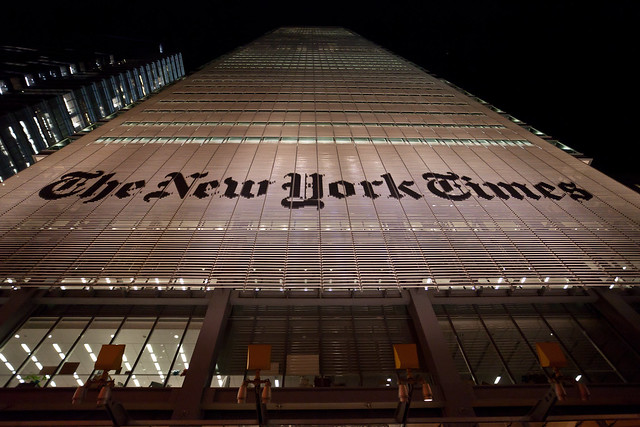 Jens Schott Knudsen / Flickr
Jens Schott Knudsen / Flickr
On Aug. 3, the latest in a series of angry, young white men drove 10 hours from his home to El Paso, Texas, where he walked into a Walmart and murdered 22 people. Dozens more were injured in the killing spree. “I’m the shooter,” he said when he surrendered, subsequently telling police that he had deliberately targeted “Mexicans.” The shooter also left behind a manifesto that echoed the eugenic language of invasion and replacement used by the president of the United States. Donald Trump has since re-avowed that language, but last week he vacantly recited his lines as consoler in chief following a second mass shooting in Dayton, Ohio—a city he confused with Toledo.
The following day, The New York Times ran with the bold headline: “Trump Urges Unity Vs. Racism.” Enough people howled online, and the front-page story was retitled “Assailing Hate But Not Guns”—a worse and even less accurate description of the president, his speech and his racist rhetoric. The paper’s executive editor, Dean Baquet, called it a “bad headline,” implying that it was the fault of a single headline writer and a front-page editorial process that has grown laxer in our digital age.
A predictable critical narrative emerged, as it does every time the Gray Lady steps in it: that the paper is feckless and weak-kneed; that its desperation to appear neutral at all costs has rendered it institutionally incapable of interrogating modern conservativism. The paper, meanwhile, has repeatedly and loudly disavowed any idea that it will or even should stand up to Trump. “The biggest single mistake we could do in navigating our coverage of the Trump administration would be to let ourselves become the resistance to the government in place,” said Times national security correspondent David Sanger in 2017 at Fortune magazine’s hilariously named Brainstorm Tech Conference, in (where else?) Aspen, Colo. Shouldn’t a free press be resistant to any government in place? Don’t ask the Times.
The paper’s clubby establishmentarianism is a given at this point. It has long viewed itself as an indispensable institution, the nation’s “paper of record” and a sort of ex officio partner in government, not to a mention a permanent interlocutor for whomever happens to rule at a given time. Its private owners come from the same sort of elite private school and university milieus that produce the Brett Kavanaughs of the world: cloistered, rich, very white and very male. If you wonder why there are so many yawning, pressed-chino, conservative types in its editorial pages, it’s because the owners are those types themselves.
The educated ownership class to which the Sulzberger family belongs and to which its educated professional-class employees aspire has always had a weakness for scientific racism, though it has usually smuggled it in under the guise of hand-waving arguments about “culture.” They will tell you that the lower orders can be educated and uplifted out of their squalor, but they ultimately believe in natural hierarchies of race and gender. There’s a reason they write dozens of stories about the true-American heartland of Trump country, and it’s not out of misplaced anthropological zeal or an overcorrection for blown coverage in the run-up to 2016. The paper’s writers and editors simply believe that white people are the real Americans, particularly if they are anti-immigrant and conservative.
Over the past two weeks, deputy Washington editor Jonathan Weisman, a man with considerable influence over how the paper covers national politics, has twice attracted the ire of progressives online. First, he posted a tweet suggesting that Ilhan Omar (who represents Minnesota) and Rashida Tlaib (Michigan) weren’t really Midwestern, and that Lloyd Doggett (from Texas) and John Lewis (Georgia) weren’t really from the South. He was likely attempting to point out some kind of urban-rural divide, and I am sure he imagines it is just a coincidence that three of the four people he mentioned are people of color. People steeped in racism rarely imagine that they are, themselves, racists. (The Lewis example is particularly galling; the Georgia congressman grew up in rural Alabama, the child of sharecroppers.)
Weisman deleted the tweet on the grounds that he had “failed to adequately make his point,” which is what you say when you’ve made your point all too well. But then he followed that up with a series of tweets, this time chiding left-leaning “Justice Democrats” for primarying a black congresswoman, perhaps in an effort to regain social media kudos for identity-sensitive inclusivity. This would have been paternalistic enough—black voters are not the passive recipients of racial largesse whenever Democrats deign to give them a black candidate in their districts—but it backfired even more spectacularly when the challenger, Morgan Harper, responded, “I am also black,” and Weisman, unwilling to acknowledge his initial confusion about her racial identity, replied that there was a photo in the story he’d linked.
The tweets poured in. Best-selling author Roxane Gay laid into him publicly, and the Times editor emailed her, her agent and her publisher to demand she apologize to him. Weisman again pleaded misunderstanding, claiming that he never meant to imply that Harper, on the evidence of her photo, was not black. Rather, he was saying that anyone could see she was if they just followed the link. But if that were the case, what was his point? Why criticize Justice Democrats for running a black woman against another black woman?
The answer, again, is a deep institutional conservativism. Immigrants, people of color—they should be glad to have what they do, and they should not advocate for some kind of “radical” change that will disrupt the careful balance of society. How can we have “Unity Vs. Racism” if the races will not stop antagonizing the raceless whites with their migrations, their demands for equity and access and their attempts to vote? The Times will always give Trump a certain benefit of a doubt in this regard. He is crude and not really one of them, but he is close enough, and he is doing the best he can.
Your support matters…Independent journalism is under threat and overshadowed by heavily funded mainstream media.
You can help level the playing field. Become a member.
Your tax-deductible contribution keeps us digging beneath the headlines to give you thought-provoking, investigative reporting and analysis that unearths what's really happening- without compromise.
Give today to support our courageous, independent journalists.

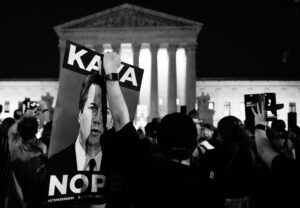
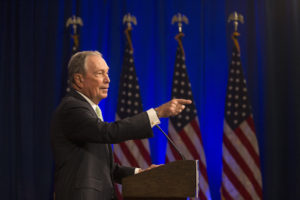
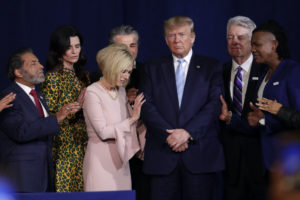

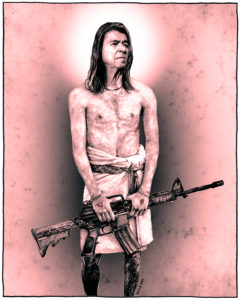
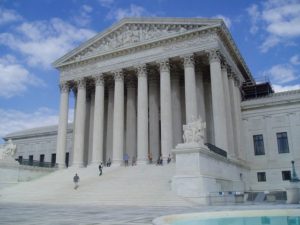


You need to be a supporter to comment.
There are currently no responses to this article.
Be the first to respond.